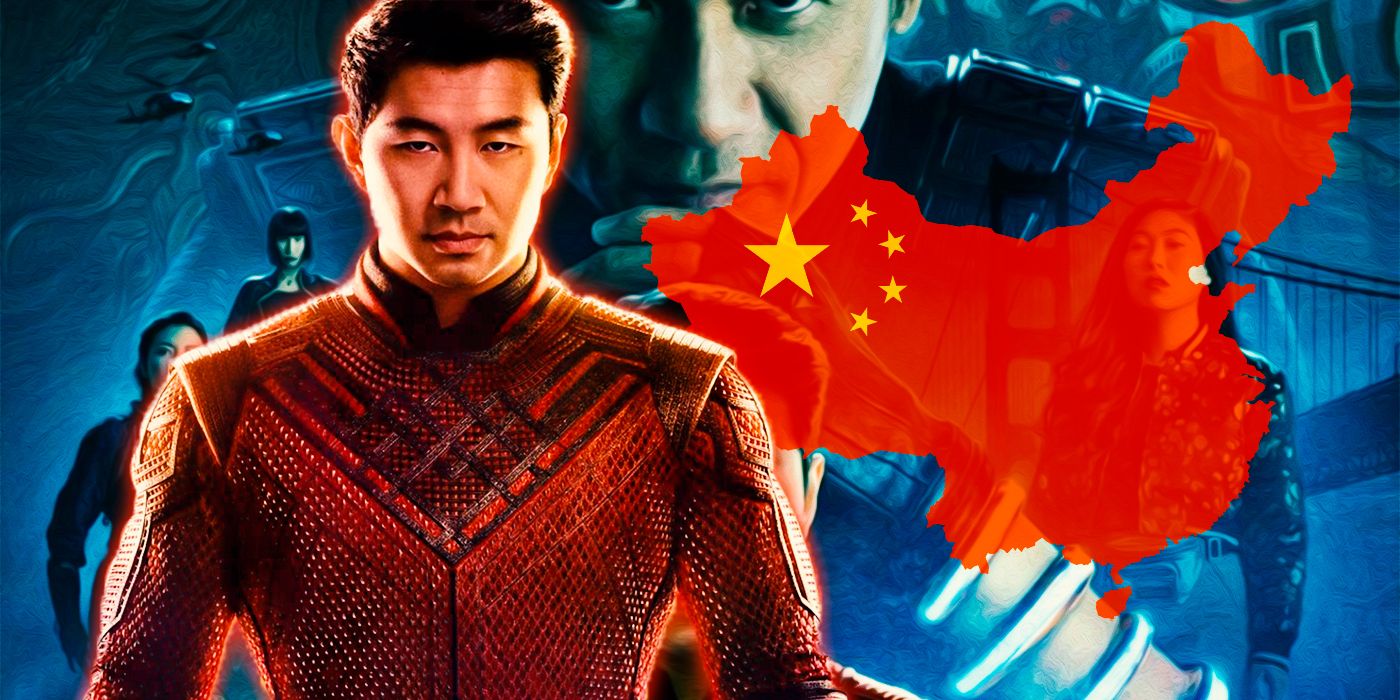Aside from uniting three different franchises, Marvel Studios and Sony Pictures' Spider-Man: No Way Home broke numerous box office records and became the first film to gross over $1 billion worldwide since the coronavirus (COVID-19) pandemic began. It's certainly no small feat. Especially because No Way Home accomplished that benchmark in a way even its pre-pandemic predecessors couldn't. It reached that number without ever screening for the largest market in the world: China.
Over the last year, none of the major Hollywood blockbusters that have attempted to draw fans back to theaters have been able to enter the Chinese market, despite being given the green light by state censors. The Chinese government has not officially banned any of these films, but none of them, including Venom: Let There Be Carnage, Black Widow, Shang-Chi and the Legend of the Ten Rings, Eternals or Spider-Man: No Way Home, were ever given a release date. While many of these films were seemingly kept from screens due to some fabricated or incredibly coincidental scandals, such as old interviews, vague references and the like, nothing was attached to No Way Home. It was just never given a release date.
Many of these films were produced with the Chinese market in mind-- a trend many blockbusters have followed over the past decade. In the mildest form, that might look like the inclusion of Chinese characters, which is certainly not a bad thing. But China's influence does become harmful when Hollywood takes part in erasing certain cultures or minorities that the CCP would prefer to keep firmly under its heel, or when films help perpetuate the Chinese Communist Party-ruled government's narrative, like the Nine-Dash Line, which has some very real consequences for Southeast Asia.
In an ideal world, studio execs and filmmakers would put human rights over the chance to make a buck, but we aren't talking about an ideal world. We're talking about Hollywood. For the last decade, China's booming theater market has virtually guaranteed financial success for Hollywood films. China as a market is worth more than a third of the global box office and it was well on its way there even before the pandemic and industry-wide shutdown. It's generally the reason why more and more blockbusters have been able to hit $1 billion over the last decade.
The financial appeal has become a growing concern among certain audiences and industry professionals. PEN America raised the issue in 2020, citing a number of recent examples in which Hollywood studios conformed to Chinese censors and thus passively allowed the CCP to export its censorship policies. Among the many examples mentioned were the whitewashing of The Ancient One in Doctor Strange in order to avoid depicting a Tibetan character and the removal of the Taiwanese and Japanese flags in Top Gun: Maverick. But the bulk of the Chinese government's influence often comes in more subtle changes-- avoiding certain themes or stories, like those involving time travel or ghosts.
It isn't always a matter of omitting certain things or rewriting. In the case of Iron Man 3, an entirely new scene was shot specifically for release in Chinese theaters, showcasing a Chinese doctor operating on Tony Stark. Representation is great, when it's not shoved into a film specifically to please state censors and curry favor. Needless to say, the inclusion of the scene did not go over well with Chinese audiences. While the cost of filming that entire scene and placing it into the film is obviously minuscule compared to the gross earnings -- the film took $65 million in its opening weekend in China -- it is still a cost and, nowadays, even more of a gamble.
Disney spent roughly $200 million producing Mulan and tailoring it to what the studio believed Chinese censors wanted to see. Not the Chinese people. The censors. Disney ignored the controversies surrounding its CCP-supporting stars, it ignored the genocide happening in Xinjiang, where some of the footage in the film was shot, and Mulan ended up being a flop. But it still earned more in China than Black Widow, Shang-Chi, Eternals and Spider-Man: No Way Home, none of which, as mentioned, have been allowed on to screens.
The lockout is not about to change. 2021 saw the centennial of the Chinese Communist Party, which came with a number of major cultural and political shifts. The state is in the process of promoting its own version of nationalism and ridding the country of foreign influence in the hopes the Chinese people will be dissuaded or kept from ideas that conflict with those of the CCP. The quota of foreign films allowed into theaters may not have officially been removed, but it will very likely shrink in the coming year. Especially since China's own film industry has proven itself by surpassing the box office earnings of Hollywood films this year with propaganda.
No Way Home should provide studios with hope, now that it has distinguished itself by earning $1 billion without ever having entered China. Some might argue that the astonishing results of the film cannot be generalized and they would be right. The film had a unique draw for audiences -- bringing three generations of Spider-Man adaptations together -- that can't be easily replicated by other projects. That doesn't mean the box office results should be dismissed.
Blockbusters in the near future may not cross the billion-dollar mark as easily as Spider-Man: No Way Home, but they will succeed and they still have the potential to cross pre-pandemic figures. More importantly, they can succeed without any of the narrative or visual limitations set on filmmakers by Chinese censors. The days of Hollywood studios going out of their way to please the CCP must come to an end. Complex stories, cultural representation and overarching themes should stem from creators and not censors.
To see No Way Home, the new Spider-Man film is now in theaters.




